Two Malian soldiers were killed and two were wounded by a roadside bomb in Douentza Cercle, an army spokesperson said on Wednesday.
The soldiers were traveling to the town of Douentza, in the central Mopti region, on Tuesday, January 21 when their vehicle was struck by the bomb, colonel Diarran Kone said, AFP reported.
The Malian Armed Forces (FAMa) tweeted that the soldiers were traveling from Boni to Douentza, and they were struck by the improvised explosive device in Dallah. The two injured troops were evacuated by helicopters from the U.N. stabilization mission, MINUSMA.
Studio Tamani reported the incident occurred between Dallah and Boni.
“The route we took was mined. My life was saved because I was [sitting] behind,” one of the wounded troops, who declined to be named, told AFP.
Roadside bombs and mines are a tactic favored by militants in the Sahel, and just last week the European Union handed over 13 Arquus Bastion armored vehicles intended to equip the two Malian battalions of the regional G5 Sahel Joint Force. Bastions have a V-shaped hull to protect against roadside bombs, and two of the vehicles are designed to combat improvised explosive devices.
FAMa also received 14 Streit Typhoon mine-resistant ambush-protected armored vehicles from the United Arab Emirates, apparently the first of 30 that the UAE is giving to Mali. Prime Minister Boubou Cisse has said that negotiations are underway with the UAE for the purchase of 100 more armored vehicles.
Militant groups in Mali
The complex insurgency in the Sahel began in Mali in 2012, when a Tuareg separatist uprising was exploited by al-Qaeda-linked extremists who took key cities in the desert north. Former colonial power France began its Operation Serval military intervention the following year, driving the jihadists from the towns.
But the militant groups morphed into more nimble formations operating in rural areas, and the insurgency gradually spread to central and southern regions of Mali and across the borders into neighboring Burkina Faso and Niger.
Many armed groups including Islamic State are active in the Sahel region, but the majority of attacks are attributed to JNIM, which formed in March 2017 from a merger of several smaller groups. JNIM’s leadership has pledged allegiance to al-Qaeda leader Ayman al-Zawahiri.
Since May 2019, ISIS has attributed insurgent activities in the Sahel area to ISWAP, its West Africa Province affiliate that split from Boko Haram in 2016, rather than to Islamic State in the Greater Sahara. ISWAP’s main area of operations is the Lake Chad area of Nigeria, Niger, Chad and Cameroon.
According to the U.N., around 4,000 people were killed in militant attacks in the three countries last year.
Serval evolved in August 2014 into Operation Barkhane, with a mandate for counter-terrorism operations across the Sahel. Roughly 4,500 French troops are deployed, focusing activity in insurgent-hit Mali, Niger and Burkina Faso. Troops deployed to Barkhane work alongside local forces and other international operations in the Sahel, including the G5 Sahel Joint Force (FCG5S), which comprises troops from Burkina Faso, Mali, Niger, Chad and Mauritania, and MINUSMA, the United Nations stabilization mission in Mali.
Last week, France’s President Emmanuel Macron and the leaders of the G5 Sahel states announced a new Coalition for the Sahel which will see increased coordination between French and local forces focused on the Mali-Burkina Faso-Niger tri-border zone and targeting Islamic State as a priority. The new Sahel Coalition will see Barkhane and the FCG5S forces operating under joint command.
Macron also announced that 220 more troops would sent to the Sahel to reinforce Barkhane.
Macron said the Sahel Coalition would prioritize the fight against ISIS in the tri-border area because it is the most dangerous.
Barkhane already has an international dimension, with France’s European partners contributing troops and equipment. Denmark deployed two Merlin helicopters that became operational in late December and Estonia is to almost double the size of its Barkhane contingent this year. Chinook helicopters from the United Kingdom also support the operation.
France has for months been trying to build support for a new international task force called “Takuba.” Armed Forces Minister Florence Parly said in November that France expected the new force to deploy in Mali by 2020.
Estonia was the first partner to confirm a special operations forces deployment to Takuba. A defense ministry spokesperson told The Defense Post that special forces will deploy to Mali in the second half of 2020 and that force will “assist, advise and accompany” the Malian Armed Forces. Belgium and the Czech Republic have also signaled that they will participate, but the U.S. and Germany have declined.
With reporting from AFP


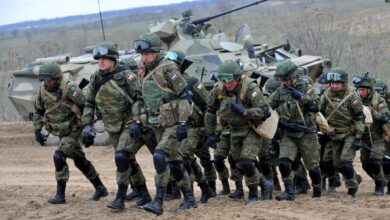

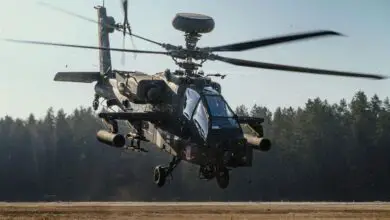
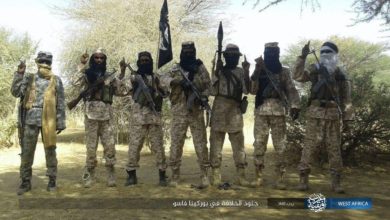
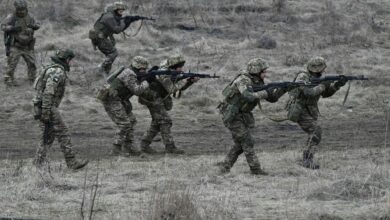
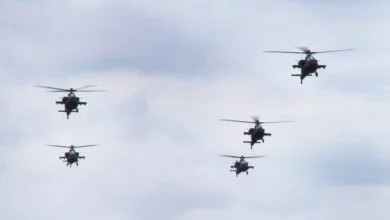
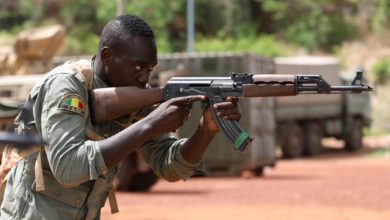
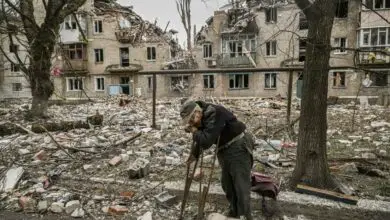
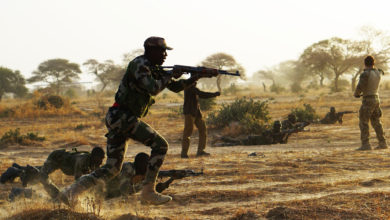

One Comment